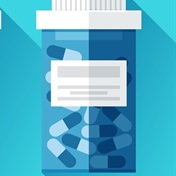"Much more needs to be done now to improve this enormous, yet neglected problem that affects particularly the poorest, most vulnerable people," warned Paul Newton from Mahosot Hospital, Vientiane, Laos, one of the report's authors.
"A comprehensive, pragmatic plan of action, linking various government organisations, health workers, industry, and civil society is essential," according to the report, published in the September issue of The Lancet Infectious Diseases.
Scale of problem unknown
There are few accurate estimates on the scale of the problem, with fake medicines estimated to represent anything between one and 50 percent of the drugs market, and there is even less objective information on the potential health and economic consequences and how to stop this lethal trade.
Compounding efforts to tackle the problem, various countries and organisations have different definitions of counterfeit and substandard drugs.
The "scale of the problem ... is shrouded in ignorance, confusion and denial," the report said. "In the absence of objective studies, estimates even for individual countries vary widely and are, at best, informed guesses."
A case in point
In India, for example, fake drugs are estimated to make up 13 to 30 percent of the pharmaceutical market, while in China bogus medicines were stated in 2001 to have caused 192 000 deaths, prompting authorities to close 1 300 factories.
But since the drug industry produces billions of tablets every year, even one percent of global production would affect millions of people, the report said.
Dire consequences
And the consequences can be dire, contributing to morbidity, mortality and drug resistance, as well as a loss of confidence in health care systems.
"Loss of faith in genuine medicines is inevitable in areas where drug quality is perceived as being poor and results in a loss of confidence in the health care system and the drug regulatory authorities if action is inadequate," it said.
Advances in forensic chemical analysis and simple field tests will enhance drug quality monitoring.
But improved access to inexpensive genuine medicines, support of drug regulatory authorities, more open reporting, vigorous law enforcement and more international cooperation with determined political leadership will be essential to counter the threat, the report stressed. - (Sapa-AFP, August 2006)
Read more:
Medicines and You




 Publications
Publications
 Partners
Partners










